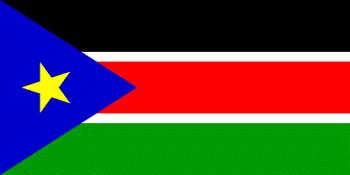Over 90% of the people of South Sudan will vote for separation – survey
By James Gatdet Dak
August 24, 2009 (JUBA) – An overwhelming majority of the people of Southern Sudan are expected to vote for separation to form their own independent country in the 2011 referendum, according to a survey report.

Based in Washington, DC, NDI is a “nonpartisan, nongovernmental organization that has supported democratic institutions and practices in every region of the world for more than two decades…and works to establish and strengthen political and civic organizations, safeguard elections, and promote citizen participation, openness and accountability in government.”
NDI works on five continents in more than 110 countries with political parties, governments, parliaments and civic groups to establish and strengthen democratic institutions and practices.
Its officials told the Juba parliament in the joint Forum that the survey they conducted in many towns and villages across Southern Sudan dwelled mostly on the respondents’ views on issues of good governance, the upcoming general elections and referendum in the South.
They said the findings have indicated that over 90% of the people surveyed said they are discontented with the status quo under the CPA arrangements and want to establish their own independent country in 2011.
When asked by the surveying team whether their current view of the status quo would change if a Southerner is elected to the post of the national President of the Republic of Sudan, the report indicated that an overwhelming majority would still vote for separation.
They argued that electing a Southerner as the President of the country would not stop the North from exploiting the resources from the South because Northerners would still continue to take 50% of the resources.
According to the report, they also said electing a Southerner to the Presidency in 2010 could simply be a trick to lure Southerners into voting for unity in 2011 and once that is done the Northerners would remove the President and return the country to their agenda; hence back to square one.
They however think that electing a Southerner to the Khartoum palace for eight months between April 2010 and January 2011 would only be an added advantage to use his or her presidential powers to help the South in facilitating the process towards independence.
On governance, the report indicated that respondents in overwhelming majority were also very much concerned about insecurity and corruption in the region.
But it said that a good number of Southern Sudanese were blaming insecurity and corruption or scarcity of resources partly on the North and would want to judge it squarely on Southern Sudan leaders once independence is achieved.
The NDI team, however, warned officials of the semi-autonomous government that the people of Southern Sudan will have even higher expectations of basic service delivery to them, than they currently have during the interim period, if independence is achieved by 2011.
(ST)
